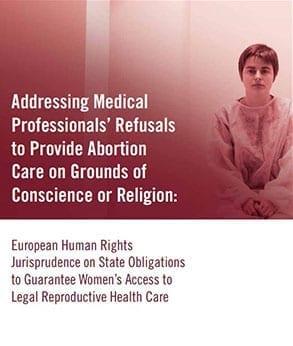United Nations Secretary-General Reaffirms Reproductive Rights Are Central to Development
U.N. Releases Post-2015 Development Agenda Report Calling on Governments to Fulfill Human Rights Obligations
(PRESS RELEASE) In a report that will serve as a guidepost for the new United Nations (U.N.) development agenda, the U.N. Secretary-General Ban Ki-moon is calling on states to ensure women’s reproductive health and rights are realized, including the elimination of child marriage.
The Road to Dignity by 2030: Ending Poverty, Transforming All Lives and Protecting the Planet is meant to set a framework for negotiations among member states of the U.N. to decide and finalize the sustainable development goals, which culminates at the U.N. General Assembly in 2015.
In his report, the Secretary-General lays out six essential elements for delivering on the sustainable development goals–including access to fair justice systems that will protect reproductive health and rights and government accountability to ensure these rights—and emphasizes the importance of respecting, protecting, and fulfilling human rights as a part of development.
Said Lilian Sepúlveda, vice president of the Global Legal Program of the Center for Reproductive Rights:
“Every woman must hold ultimate authority over the full range of decisions she faces about her health and her family, from controlling her fertility to choosing with whom she wishes to build a family. Gender equality cannot be achieved without ensuring women’s right to make these vital decisions and determine the course of their lives.
“We commend Secretary-General Ban Ki-moon for recognizing that human rights, and accountability for fulfilling them, are essential parts of development. But U.N. member states must place greater emphasis on ensuring that women’s reproductive rights and gender equality are top priorities in the final sustainable development goals.”
The Secretary-General’s report calls for “zero tolerance of violence against or exploitation of women and girls” and the realization of women’s reproductive health and rights, and affirms that “the practice of child, early and forced marriage must be ended everywhere.”
However, the report does not sufficiently address the need to ensure other aspects of substantive gender equality that have been prioritized by several U.N. member states and U.N. agencies in the Post-2015 Agenda. The report also does not address the root causes of gender discrimination, or call on states to eliminate discriminatory laws and policies that limit opportunities for development, including in the area of reproductive rights.
International human rights norms have recognized that reproductive rights are human rights, clarifying that violations of reproductive rights are primarily manifestations of discrimination, poverty, and violence. The Center for Reproductive Rights recently published Substantive Equality and Reproductive Rights: A Briefing Paper on Aligning Development Goals with Human Rights Obligations that provides concrete recommendations to states about how to ensure reproductive rights in the Post-2015 Agenda, including:
- Ensuring that a comprehensive range of quality sexual and reproductive health information, services, and education are accessible, affordable, and acceptable for all individuals,
- Providing protections for women’s sexual and reproductive autonomy, including their right to decide on the number and spacing of their children, and
- Ensuring effective local and national access to justice for individuals whose rights have been violated and international accountability for states to live up to their human rights obligations and development commitments.

